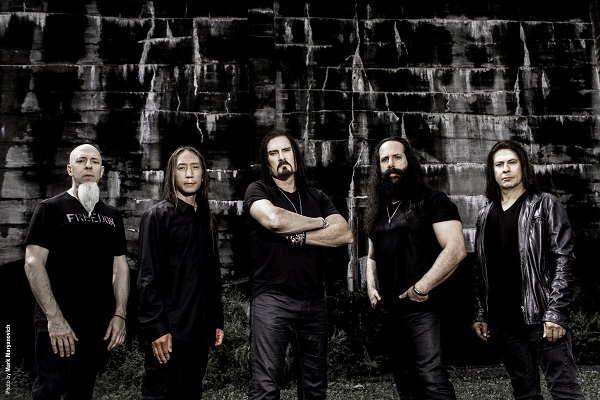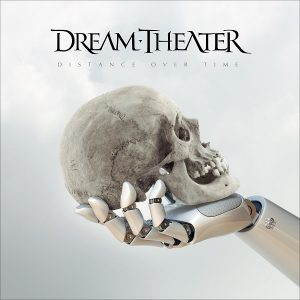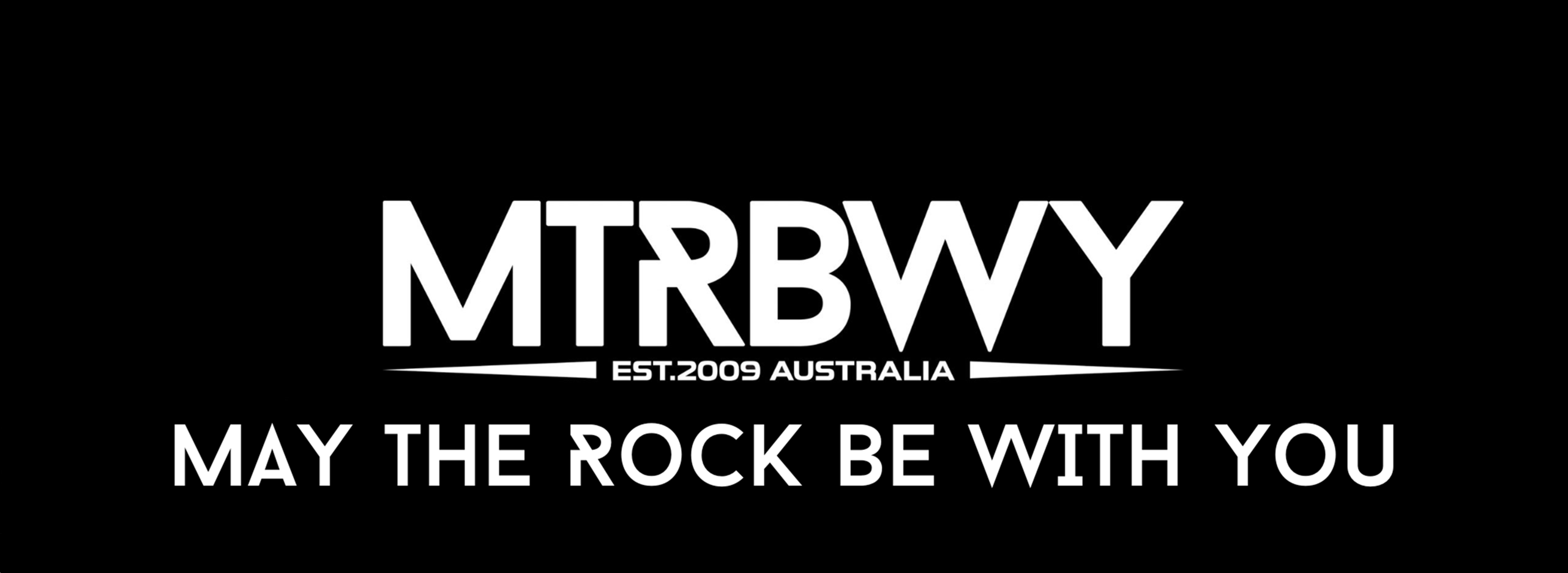 “We knew we wanted to go in and write a heavier album, more hard rock but at the same time keeping the progressive elements that have been a strong signature for Dream Theater…”
“We knew we wanted to go in and write a heavier album, more hard rock but at the same time keeping the progressive elements that have been a strong signature for Dream Theater…”
From Release: Chemistry triggers action. The bonds of disparate elements yield friction, energy, and ultimately incite creation. It happens throughout all of existence—especially in music. The music of Dream Theater relies on the interplay and brotherhood of the musicians as much as it does on the harmony of the instruments. In fact, the chemistry the band unlocked upon forming in 1985 remains central to the music they create today.
We Skyped in with James LaBrie to talk about Dream Theater’s new album ‘Distance Over Time’, its creation, its inspiration, technology, touring, and more…
Thanks for your time today, James, we’re here because ‘Distance Over Time’ is released next week, what are your feelings like around release time?
You know it’s funny because I think we as a band we all start feeling that gear shift and you know cause we’re constantly in contact with one another discussing the set list and the concept around the show and so on, but I guess with myself personally I can really feel I mean we’re about a month out, a little over a month before we do our first show in San Diego and things are starting ramp up. I’m singing every day, I’m going through the songs, working out in the morning to get myself into shape for the stage and stuff like that. So it’s kind of a reality already that you’re almost in tour mode, so yeah but we all kind of feel it about a month outside.
In the three years since ‘The Astonishing’ what if anything was the main inspiration and catalyst behind this new album?
I think just to get first and foremost I think the fact that we actually lived together while we were writing and recording really kind of set the tone for this album. We knew we wanted to go in and write a heavier album, more hard rock but at the same time keeping the progressive elements that have been a strong signature for Dream Theater, but I think the inspiration was let’s get back to the roots, let’s just get back to writing what we feel is going to be a classic, heavy Dream Theater album and maintaining the identity throughout so it became a very spirited effort once we got in there things were just really smooth sailing. It was three weeks and we write the album, I mean it was moving pretty fast and obviously you take weekends and stuff like that and the odd time somebody had to go home and do this and that but for the most part we were parked right there, we lived in this house that was about a hundred or so metres from the studio where we were recording, so you get up in the morning and you do whatever your routine is and then around noon hour or one o’clock in the afternoon the band would be there and we’d start working on our ideas.
 What I love about the album is that you guys all take turns in writing lyrics, you all have a song with your own lyrics yet the album just flows so well. Is that a combination of just knowing each other so well and just what works?
What I love about the album is that you guys all take turns in writing lyrics, you all have a song with your own lyrics yet the album just flows so well. Is that a combination of just knowing each other so well and just what works?
Yeah I mean myself when I want to write a lyric to a song I’ll actually mention it as the song is going on and it might be during the writing session or it might be when it’s completed I’ll go “You know what? Hey guys, I’ve gotta write the lyric to this, it’s moving me, I love the vibe, I have an idea what I want to write about just due to the energy of the music itself.” So sometimes you’re already throwing your name in the hat for the particular song. It pretty much works like that with everyone, somebody will say oh hey you know what this is a great tune I’d really love to write the lyric for this and so it kind of just goes like that. Obviously Mike Mangini had his debut lyric on this album and it was kind of funny because that song ‘Room 137’ the joke of it is that it started off and we always ask Mike if we’re getting on a groove or a riff or whatever might be happening we say “Alright, hey Mike, what’s the tempo?” and Mike he just knows it and for this one he said “1… 3… 7…” and he’s a pretty funny guy and does all these accents along the way. Then he started talking to us one night and said, “hey guys, you know how that song is 137? It’s the tempo, it made me think of this guy Wolfgang Pauli who is a physicist who was obsessed with the absolute number 137 which kind of describes the dimensions of our universe, of each and every one of us on this planet, going to the trees, insects, birds, like I said homo sapiens, whatever it might be” and we said “what? What are you talking about” and yeah, this number pretty much describes what is going on it’s a mathematical equation that this physicist was obsessed with and he was dying I believe of pancreatic cancer and when they brought him to the hospital he was put into room 137 if you can believe it. Was that coincidence? I don’t know, but so it just went on from there, so we were like “man you’re pretty close to this” and all of a sudden in one day he said “hey guys here are some words that I wrote about that subject what do you think?” So John and myself we kind of looked at it and we were like wait a minute, this is pretty cool let’s just tweak it here and there and that’s what happened, we tweaked the lyrics, Jordan came in and said “well I’d say this or that” and they tweaked the lyrics and they came out like they were. So that’s how that came about. When it comes to myself writing lyrics I don’t want anybody around, I know what I want to write and I think the same stands true for John Petrucci, and then John Myung and John Petrucci co-wrote a couple of the songs on this album together like ‘Fall Into The Light’ and ‘Signal To Noise’ and they co-wrote those lyrics together.
Technology is ever changing, and looking back to 1992 and ‘Images and Words’ where digital really wasn’t even a thing, what for you has been the biggest difference in the way that the band makes music now compared to your beginnings and first effort with the band?
Well yeah back in the ‘Images’ days you would do a demo on a four track recorder or an eight track, or sixteen track and that would be your template for the songs. Then you go in and you have the big two inch reels and you’d have four or five or six machines lined up and in sync with each other so you’d have enough tracks to record everything properly so you’d be in this big control room and you’d see all these big machines turning tape and recording on tape *laughs* and it was just a completely different experience. Whereas today even when we were writing and writing the songs we would always have a pro-tools system going and we would actually record everything onto this pro-tools system and it sounded frickin’ awesome *laughs* like seriously. The way that we were mic’d up and everyone was mic’d up in the studio and what would happen is that we had a section and let’s say that the section was two or three minutes long, the guys would rehearse that section until it was tight and then lay it down as a band. So everything kind of went bang bang bang and it was a big what we would call a digital demo or whatever on pro-tools and then from that that was kind of our template to go in and then record for real and then do it for real. It’s completely different, you can take advantage of it and you can be so scientific and clinical but I think with this album we really did want to capture some of the actual spirit of the band and the band being a rock and roll band and just going for it. I think the keyboard solo in ‘Pale Blue Dot’ or it might be ‘Signal to Noise’ that’s a demo, that’s from Jordan right off the floor and it was so good that when he was doing his actually tracks it was like, dude, when it went to that solo we were like wait a minute, what’s wrong with this? It was recorded properly and he was like “yeah man, that actually is pretty frickin’ awesome” so there were moments like that. That kind of stuff it went on in a few moments here and there throughout the recording of the tunes.
You mentioned you’re going out on tour but I have to ask about touring, when do you think we might see you back in Australia?
Hey, *laughs* I don’t know, at this point I can tell you we have been sitting down and speaking with our agents and we have been saying we have to get over to Australia, Australia again you see when we did the last tour we felt it was just like a drop in the pan because we only did a couple of shows and boom we were gone and to us that wasn’t cool, we’ve done more extensive tours in Australia in the past and we feel that’s gotta happen again. I do know that we’re booked right now, like I said we start in North America we’re doing that until May 5th I think we end up in Mexico City is our last show then. I the Summer we’re doing six and half weeks over in Europe doing a festival tour and that brings us right to August, and then in September I’m assuming we’re going to do the Pacific Rim, so I’m hoping that would be the opportunity that while we’re down doing the pacific rim that we are also including Australia and getting in there and doing something that’s very, very exciting.
Over time it’s very easy to say what’s changed but what would you say is the one thing that’s stayed the same about your time in Dream Theater?
I think the one thing that’s stayed the same is I guess our passion you know and I know it sounds very clichéd and very cheesy to say but we’re still very committed to our music, we still love what we’re doing and that’s what drives us, that’s our catalyst, that’s always been our inspiration is we want to see what we can do next . Obviously we still love touring and that can we quite challenging at times and you talk to any band it’s a different beast when tour. So I think the fact is that we still love doing what we do has been a consistent throughout the years and that’s not to say that we didn’t have our growing pains and we didn’t have difficult times in the band because let’s face it you’re dealing with five different personalities, very strong minded and very dedicated and very disciplined in what we do so that kind of makes for a very interesting and kind of high level environment *laughs* you know? I think that has been the consistent.
Lastly let’s look ahead to the future, finish this sentence for me. By the end of 2019 Dream Theater will…
Be looking at 2020 to continue doing this tour *laughs* yeah… I’m sure we’ll be doing this until the spring of 2020 I’m sure.
Essential information
From: Long Island, NY, USA
Band members: John Petrucci – guitar, John Myung – bass, James LaBrie – vocals, Jordan Rudess – keyboards and continuum, Mike Mangini – drums
Website: www.dreamtheater.net
Latest Release: Distance Over Time (Out Now – Inside Out Music)


